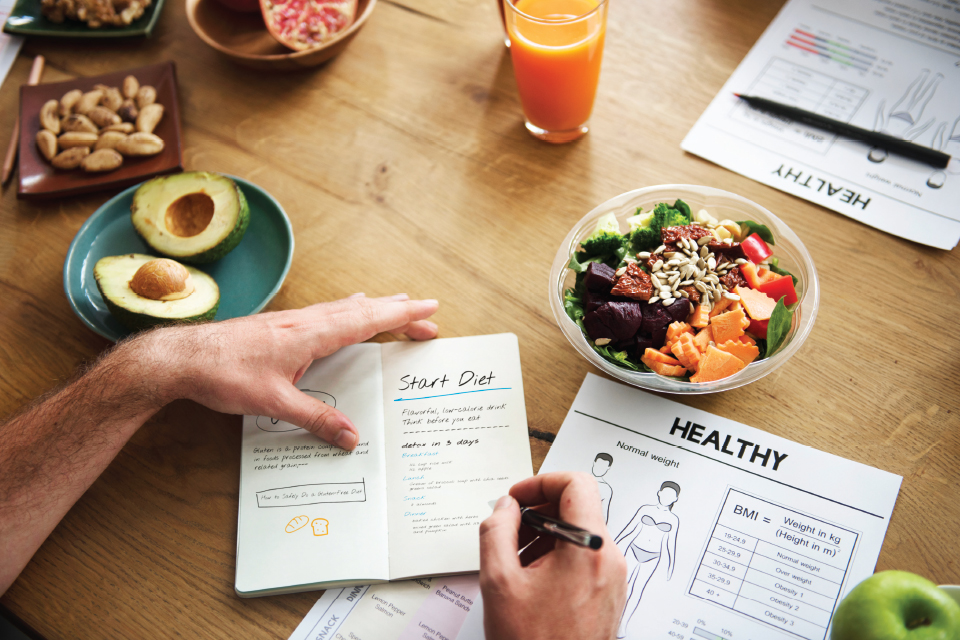Willpower, Moderation, Mindfulness, and Other Useless Diet Advice

Have you ever asked someone for advice on dieting or nutrition and received some form of answer centered around the following concepts?
1. Willpower
2. Moderation
3. Mindfulness
While it is important to practice all of these when it comes to a sustainable nutrition protocol, for whatever your dietary goals may be—in this case, fat loss or weight loss—I wish there was a little more “meat” to this type of advice. Furthermore, by providing these concepts as a plan of action to clients, wellness professionals are not actually helping their clients in any real, actionable way.
Why? Because these statements are oversimplified and the ideas behind them are way too abstract to be actionable. They can be interpreted differently by everyone and there is no actual guidance or education in these abstract concepts alone, therefore making this type of surface-level advice pretty useless to most people. I’ve found that super-simplified advice can add to the frustration most people feel about dieting and nutrition in general, making it seem like, for them, fat loss or weight loss is this elusive thing because they have not uncovered the secret formula for success. Any experienced wellness coach worth their salt will tell you that there is no secret code. There is no “superfood” to try, no magic pill to buy, no mental mastery that you have not yet acquired. If you’re banging your head against the wall wondering, “Why not?!”, I encourage you to consider that the nutrition advice you’ve received is just not very useful at all.
Let’s break it down:
1. Willpower sucks as a motivator because it’s fleeting. Willpower is a negative driver for behavior. It focuses on what we have to live without, what we cannot do. We can only white-knuckle through our lives for so long. At some point, and almost regularly, our willpower is tested. And what happens when our willpower fails us? We feel bad, guilty, and defeated. That sucks. What if we replaced willpower with discipline? What if we created new positive behaviors that favored a healthy diet and lifestyle? What if we congratulated ourselves for our successes, instead of punishing ourselves for our inevitable slip-ups? We can make the shift to replace “perfect” with “better.” We can, instead, practice a little patience and grace with ourselves when it comes to achieving our goals. I like to think of willpower as what you can use to make it through a sprint–it only works for a short time. Discipline is what you’ll need to endure the marathon. So, my advice is to make a daily commitment to yourself and hold yourself to it every day.
2. Moderation is overused as a big fat cop-out for behaviors that hold us back. I hate to break it to you, but there are some behaviors that you must give up if you want to achieve certain goals. This is life! You can’t expect to achieve a goal that is a stretch for you if you’re still stuck doing the same old things. I often hear “moderation” as it relates to alcohol or junk food. (No one needs to drink water or eat veggies in moderation—by all means, don’t hold back!) Moderation to one person may mean only one glass of wine a week, and to someone else, that might mean only one glass of wine each night. As you can see, “moderation” as dietary advice sucks because it’s not specific to each person.
3. Mindfulness is another one of those abstract concepts that few can really grasp. In this day and age, we are far too busy, too over-stimulated, and too distracted to differentiate hunger from thirst, stress from fatigue. Can we really trust our gut to tell us what it wants and needs? Most people need to think less about food in general and stop obsessing about the “right” foods to eat. Once you know how much you need to achieve your goals and find a mix of foods that you enjoy eating, you can automate the decision about what to eat and when. Yes, I’m actually advising that you think less about food. Take food down to its most basic purpose of nourishment and enjoyment. Food is just food. We glorify and/or demonize it. We attach feeling and meaning to it more than its basic purpose to fuel us. You aren’t going to suffer if you don’t eat that dessert. You won’t be less lonely if you eat that bag of chips, and that green juice will not make you a better person. It’s just food. Don’t give it so much power.
So what does work? First, you need to get real with yourself. You need to understand your actions and behaviors, motivators, and hang-ups. No judgment. I advise clients to take an inventory of what they’re currently doing regularly with regard to their nutrition, activity levels, exercise, and lifestyle in general. I recommend my clients log their food and workouts for a few days using a tool like MyFitnessPal so they can get an idea for the calories and macronutrients they are consuming and the energy they are expending habitually. Then they can start to identify areas of struggle and where they can make changes. It’s usually pretty obvious to them once it’s in writing. Just like creating a budget, once you go through the exercise of tracking and assessing your current situation, you can create a plan of action. You can then focus on creating new, healthy behaviors that support your goals. You can get to work laying bricks to build what you want.






